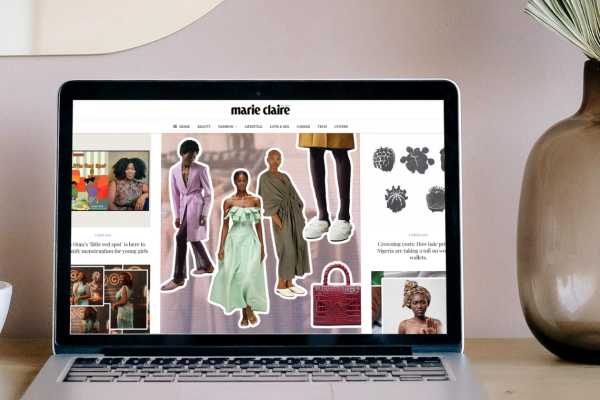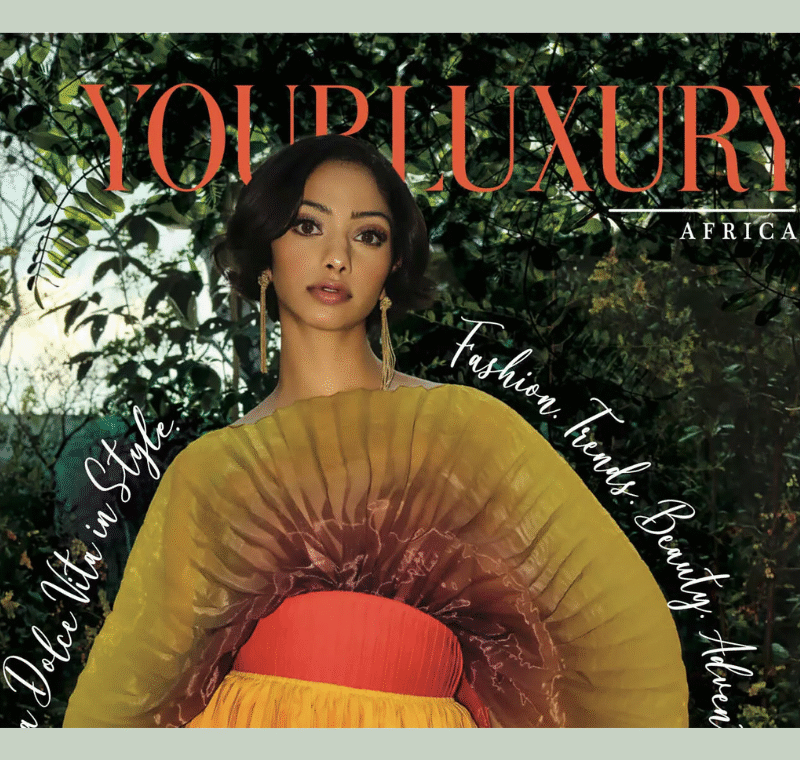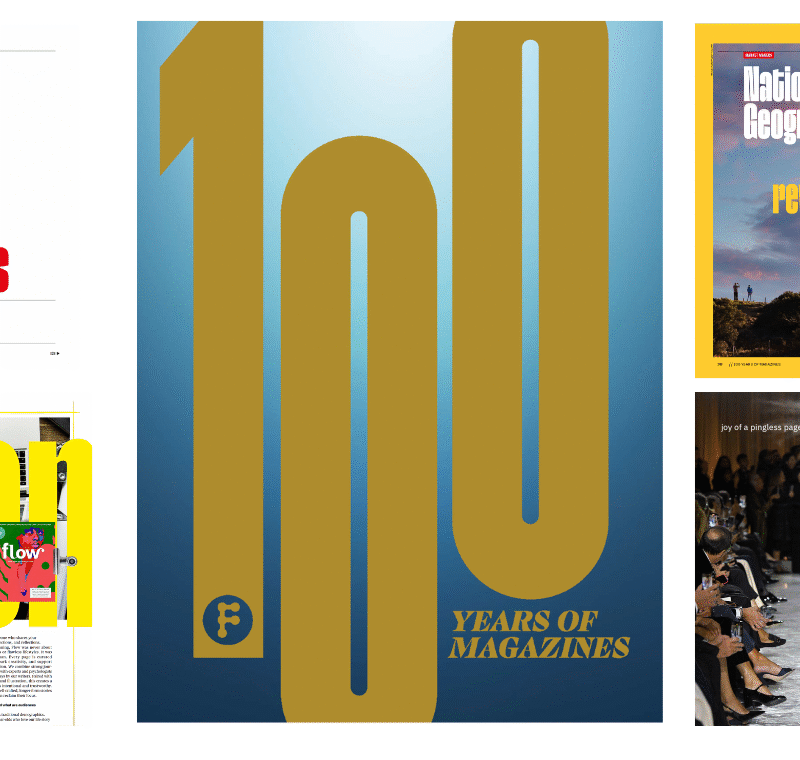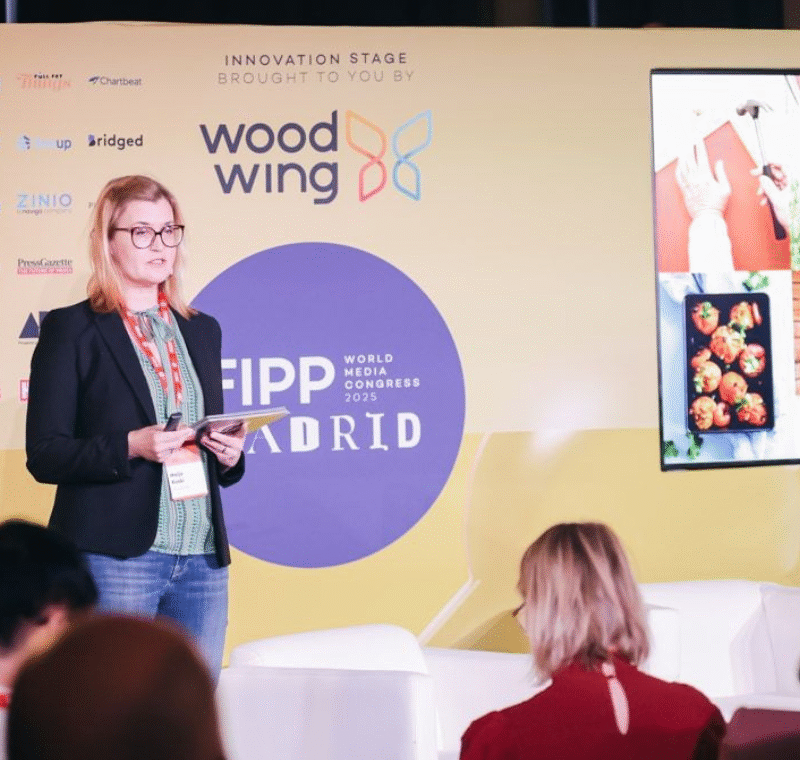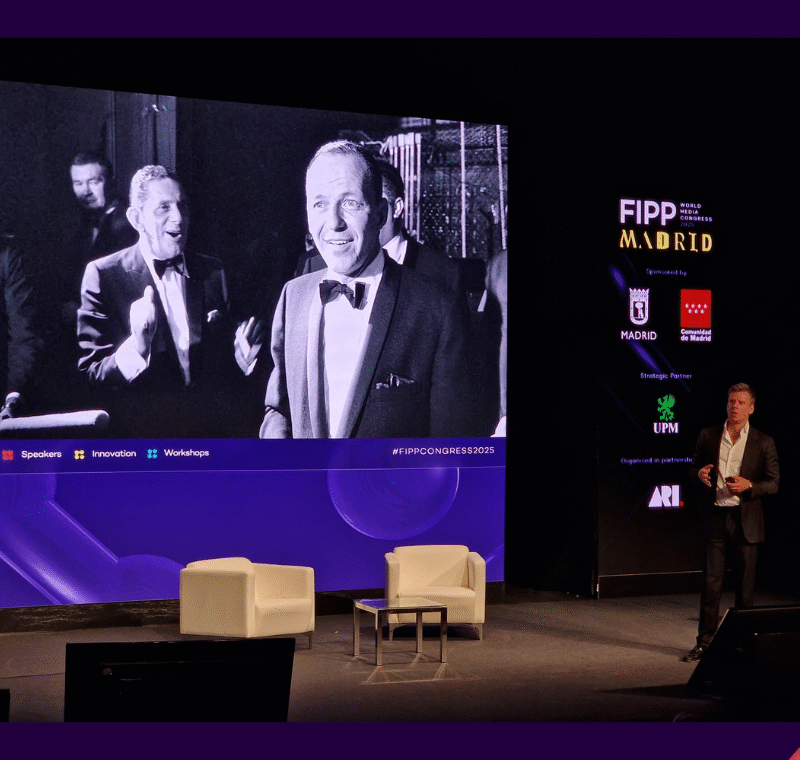Real stories for real women
Marie Claire has launched in Nigeria as a digital edition against a backdrop of political upheaval and a redefining of ‘the Nigerian woman’. Editor-in-chief Chidera Muoka explains why she’s excited about the inevitable backlash.
What made you launch now?
It was just the right fit and the right moment. In Nigeria, we have beauty and fashion magazines, but not a magazine that’s predominantly focused on women’s issues. We are seeing more social changes, women becoming more vocal, women becoming more active in political and social topics. Our target audience is millennial women, and they are passionate about championing women’s rights and women’s empowerment – and until now we haven’t had a platform for that. It was such a great opportunity for The Guardian to be that platform, to give women that voice.
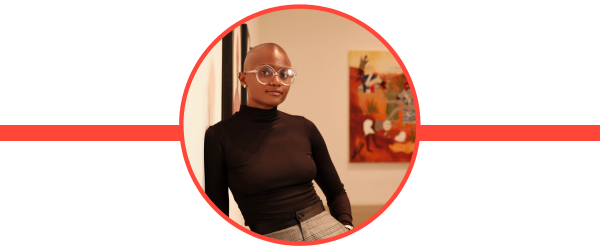
You’ve spoken in other interviews about how resilient women are in changing the status quo… Could you tell us a little bit more about some of the big social issues in Nigeria right now?
We’re seeing an evolution in Nigeria – more women are gaining places in political parties, more women are on the streets championing women’s rights, or protesting police brutality. That would never have happened a few years ago. And I think the Nigerian woman is also evolving: she’s not afraid to show up as she shows up, she’s more vocal, she’s not afraid to demand her rights in the workplace, in politics, in the economy. Bias and marginalisation went on for so long, that women were hiding who they were. But now they are owning their identity. We now have people being openly queer in a country that says you shouldn’t be. We have Chimamanda Ngozi Adichie speaking up, talking about the need for the patriarchy to die in the Nigerian system. We’ve had a culture that held us back for a very long, but we’re changing the narrative. Diversity, inclusivity and vulnerability are in the brand values of the magazine.
How did you come to be editor-in-chief?
I was the editor of a Sunday magazine called Guardian Life, and after I left, my boss called me and said they were looking for someone for Marie Claire Nigeria. He thought I’d be a perfect fit because of the kind of work I’d done at Guardian; social impact, human interest stories. While other lifestyle magazines in Nigeria were talking about high society, I was writing about mental health, sex work and abortion.
Are you expecting much backlash to covering what are considered ‘controversial’ topics?
Yeah, definitely. I can’t wait. I think we need to have this conversation, because like I said, women have been marginalised for the longest time. One our biggest challenges is going to be educating the public about feminism. Currently in the Nigerian media space, feminist is a derogatory word, but we are trying to change that narrative. It wasn’t too long ago that people saw women as domestic staff, as housewives, as cooks and babymakers – never as people with their own dreams. Now, we are going to cover real life stories by real Nigerian women, so there’s bound to be backlash. I mean, every time we put out something about ‘being a woman’ there’s backlash. But I’m excited because it means that the community is listening. It means that they’re hearing us.
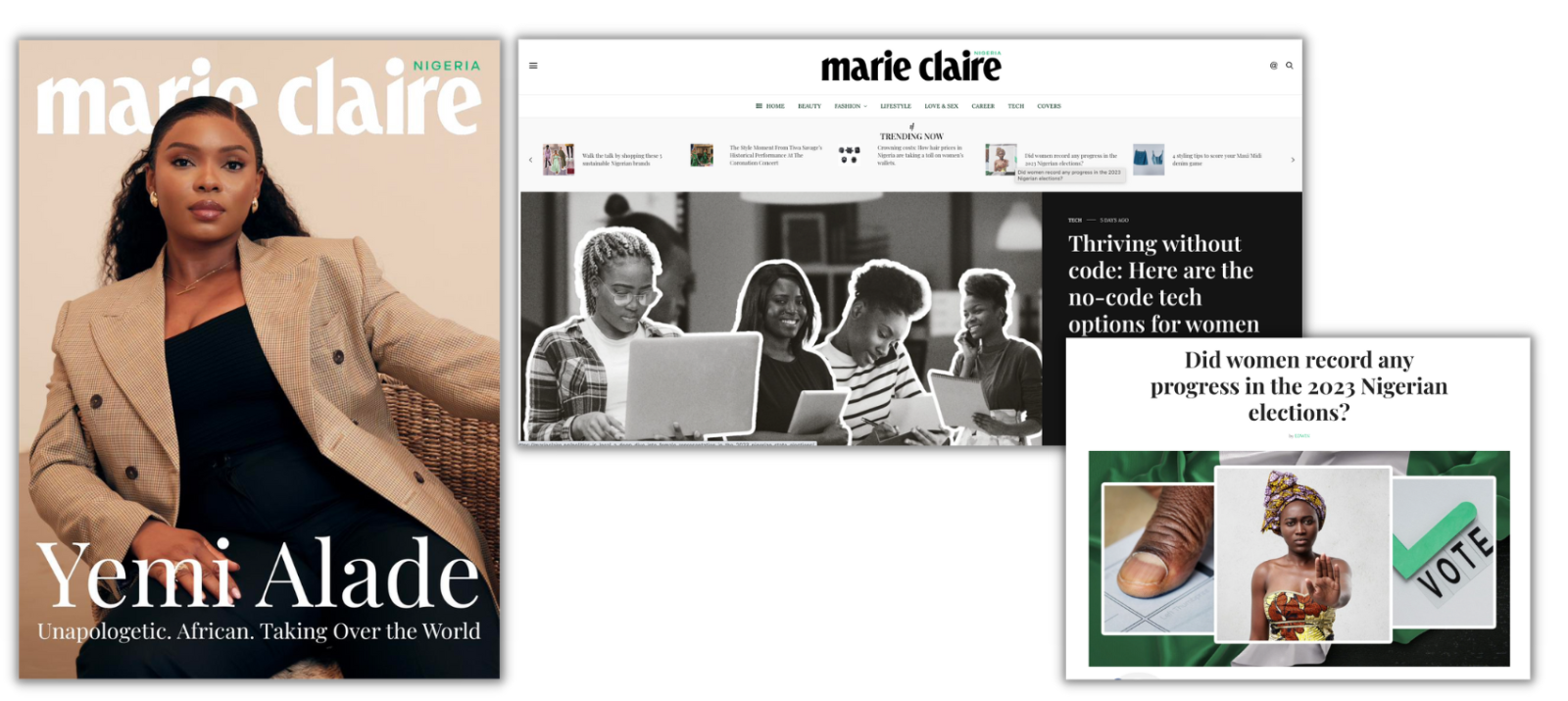
How have people responded so far?
When we were working on the cover, I shared it on LinkedIn, and someone said, “Why isn’t she in African print?” I love that. That’s when I knew we were getting somewhere. There’s an assumption of how we should represent Africa. But Africa is so diverse, there’s not one way to be African. We’ve gotten a lot of positive response about that, people saying, “I love that Marie Claire is in Nigeria – finally I have a platform that will show who I am, that will give me something to relate to.”
It sounds like you’ve had quite a lot of freedom in the direction of the magazine…
Definitely. One of the things that has made this journey so exciting is both the support and trust I’ve been shown my Marie Claire International. And it’s been interesting to think about how to fit Nigeria and the MC brand together. For example, how did we want women in our magazine to look? The women in our first issue look quite different to how some women present in Nigeria, and that’s because I wanted to focus on the woman, not how she looks or how she presents. I want to see her, be able to read that article and feel an intimacy: “She’s talking to me.” I want to feel empowered by her. The freedom to make those kinds of decisions, to be able to understand the target market has been so important for me because we need to shape the African woman’s story. Marie Claire Nigeria has an opportunity to not just tell the story for Nigerian women, but for African women as a whole.
It’s an incredible opportunity…but do you ever do you ever feel nervous about having that level of responsibility?
I do. It’s huge! Because I’m operating not only in this country, but on behalf of a whole continent, I feel like everything I do is symbolic. There’s so much pressure in terms of making sure that I don’t misrepresent my country. Throughout April, I woke up anxious every day. But then I would talk to my team, and I would feel reassured. They made me feel that we can do this. And we’re all ready for the challenge.
Which other publications of Marie Claire inspire you?
A lot! With Marie Claire France, I’m excited to get the newsletter because the stories really speak to me. I look at Marie Claire UK because so many Nigerans migrate to the UK, so I make sure I’m reading those platforms as well. I love the design and the stories. Marie Claire USA is good for pop culture, and I love the fashion in Marie Claire Korea. With the Marie Claire brand, I feel like whatever country it’s in, you get to see a range of women’s stories that you’re not usually privy to seeing.
Who do you want next on the cover?
I really want Chimamanda on the cover. She was so pivotal to my life – I discovered her around the age of 13 or 14, I saw a girl that was just like me who didn’t conform, who thought like me. And I think she’s that person for a lot of Nigerian women.
You’ve been planning it since before Covid – it must be a relief to finally get it out there…
It’s surreal and exciting – nobody understands the amount of work I’ve put into pulling together the first issue, the back and forth of the licensing, populating the website…finally the world knows.
That’s the curse of an editor, isn’t it? Nobody really knows how much work you do.
No, they’ll say, “That’s a nice cover,” and I’m like, “Girl, I went through hell!”

